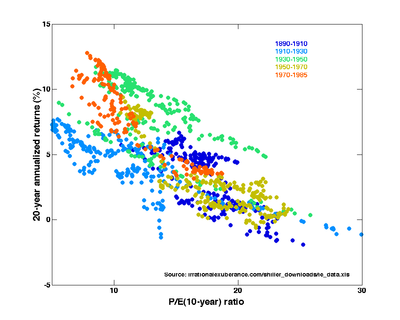"Psychology and trading
Stress testing
From The Economist print edition
The crisis is likely to make traders take riskier decisions to avoid losing money
IT HAS long been known in financial markets that people are so reluctant to lose money that they will take big risks to avoid it. If you give the average person a 90% chance of winning a little money or a 10% chance of winning a lot, he will most likely take the option that offers him at least a little bit of cash. But offer him a 90% chance of losing a little money or a 10% chance of losing a lot, and he will opt for the latter. A recent study finds that stress exacerbates this.
| |
 | |
My left hand is freezing |
Anthony Porcelli and Mauricio Delgado, psychologists at Rutgers University in New Jersey, set out to analyse the sorts of financial risks people were willing to take when calm or stressed. They knew finance could be stressful at the best of times. Stockbrokers, for instance, make important financial decisions in split seconds in conditions that are sometimes noisy, hot and socially tense, they noted in Psychological Science, a journal. Does this affect their judgment?
The experiment involved students playing a gambling game. To stimulate stress, for part of the game half had their main hand in very cold water. The students faced financial decisions that varied in both the degree of risk and the amount of money that could be won or lost. They could choose between, say, an 80% chance of losing 75 cents and a 20% chance of losing $3 or an 80% chance of winning 75 cents and a 20% chance of winning $3. They could keep anything they won.
The psychologists found that exposure to stress led participants to choose riskier decisions when trying to decide between taking a minor loss or a major one. The reverse proved true with gains.
One potential explanation for the effect might be that the human brain has two ways of looking at the world, an analytical one and an intuitive one. The analytical one is more easily disrupted by outside stimuli, such as stress. The intuitive one cuts to the bottom line when times are tough.
Professional traders with years of experience should still make reasonable decisions when forced to respond to situations under stress since their intuitions are well honed. Thus, increasing stress should not disrupt their activities much as long as circumstances are not so unusual that they disturb their intuition.
What is worrying is that today’s traders are in truly uncharted (and very cold) waters, and under such conditions, experience is little help; split-second decisions have to be taken that have never been encountered before. As a result, traders could be vulnerable to the phenomena seen in the study, says Valerie Reyna, co-director of the Centre for Behavioural Economics and Decision Research at Cornell University in New York. Ideally, one way for governments to improve the situation would be to give people a better sense of what is going wrong and how to fix it, explains Ms Reyna. Unfortunately, governments seem to be almost as disoriented as everyone else at the moment. So the traders are likely to take bigger risks to avoid loss, just like the students."







































